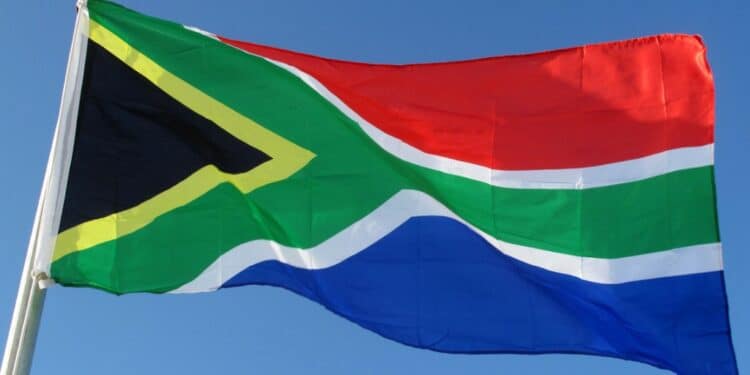Death of a Whistleblower, a film by South African director Ian Gabriel, is making headlines across film festivals and with African audiences. This high-energy political thriller follows investigative journalist Luyanda Masinda (Noxolo Dlamini), who, after witnessing her lover and fellow investigative reporter assassinated by the group he was investigating, joins forces with a secret military whistleblower. Together, they embark on a perilous journey in their quest to expose the state capture of a corrupt South African security group and the double-dealing profiteers who benefit from warfare in Africa. It’s a story that ties the past and present together across 37 years, highlighting that the past injustices are still very much felt in South Africa today.
The film sheds light on a pressing issue: the decades-long national crisis of whistleblower assassinations in Africa. The Global Initiative Against Transnational Organised Crime has recorded a staggering total of 1,971 assassination cases in South Africa between 2000 and 2021, with whistleblowers often being the targets. The South African Human Rights Commission (SAHRC) recognizes the urgency of this crisis, stating its “moral and constitutional obligations to ensure that whistleblowers are protected because of the important role they play in fighting corruption.” Despite this, several South African whistleblowers have since been targeted and executed, with the government failing to protect them.
Whistleblower Network News contacted Mr. Gabriel to discuss his film. “Even though there was this massive change [in South Africa since the end of apartheid], a lot of the corruption that existed before is still there in a new disguise,” he explained.
“The work of whistleblowers and journalists are very much aligned,” Mr. Gabriel said. “Initially, the whistleblower is talking in the wind, hoping someone will pick up the story, and it’s the journalists who carry the whistleblower story forward.”
South African whistleblowers face an uphill battle when it comes to reporting corruption. Between 2000 and 2021, South Africa experienced 1,971 assassination cases, with whistleblowers emerging as the primary targets. Despite facing threats and targeted violence, South African whistleblowers remain determined to bring accountability and transparency to powerful institutions.
Mr. Gabriel expressed that he especially wanted the film to highlight the bravery and strength of South African women who fight against corruption.
“We have a phrase in South Africa which is ‘Wathint’ Abafazi, wathint’ imbokodo,’ which means ‘when you strike a woman you strike a rock’… so it was my intention to use women as the prime driving force in the film as a force to save the country,” Mr. Gabriel said.
The film is inspired by several South African whistleblower stories, and Mr. Gabriel made sure to pay homage to them, reminding the audience of the human beings who put their lives on the line. The final images of the film bring attention back to the sacrifices of South African whistleblowers, highlighting five South African whistleblowers who were killed by vengeful gangster-style attacks to stop them from speaking out. The film closes with a tribute to the South African whistleblowers from 2010-2023 who have lost their lives in their pursuit of stopping corruption in South Africa.
The film received critical acclaim at its debut at the Toronto International Film Festival and its African premiere in Johannesburg at the Joburg Film Festival, where it was awarded the 2024 Best African Film award. Its same-day release on Amazon Prime Video catapulted it to the top of the local charts, sparking excitement and anticipation among viewers.
Ian Gabriel is a South African director whose career began at Dorkay House, Johannesburg’s famous anti-apartheid theater venue. His feature film Four Corners was the South African Official Submission for Best Foreign Film at the 86th Academy Awards and won several film festival awards. He also directed the Netflix family crime series Ludik and a comedic family road trip movie, Runs in the Family.
Learn more about South African whistleblowers and the reality they endure fighting for anti-corruption in South Africa. Mzukisi Makatse and Johannah Phenya, two recent recipients of the 2023 Blueprint for Free Speech Blueprint Whistleblowing Prize, highlight the dangers for South African whistleblowers. Makatse and Phenya recently detailed their separate whistleblowing journeys on WNN’s Whistleblower of the Week Podcast.


